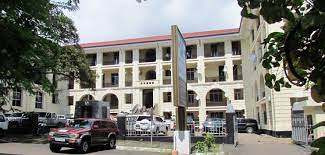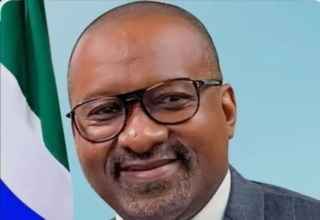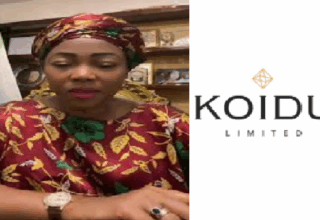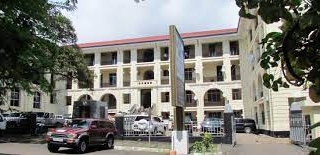
The Ministry of Finance in collaboration with partners on Monday 24th May commenced a two-week long (May 24 – June 2) seminar at the New Brookfields Hotel in Freetown on Medium Term Debt Management Strategy with the World Bank and the International Monetary Fund Virtual Mission.
This occasion marks the third in the conduct of Medium-Term Debt Strategy (MTDS) in Sierra Leone. The first MTDS ever conducted in Sierra Leone lapsed in 2017, covering the period 2013 to 2017. Following the political transition in April 2018, through the request of the Government, the World Bank, International Monetary Fund (IMF) and the West African Institute for Financial and Economic Management (WAIFEM) coordinated the conduct of the Second MTDS for Sierra Leone.
During the opening session of the seminar, the Deputy Minister of Finance 1, Dr. Patricia Nyanga Laverley said as a Ministry, they are pleased to report that the Government of Sierra Leone has successfully developed and published a domestic arrears strategy following the verification of the stock of arrears by the Audit Service Sierra Leone.
“The strategy is under implementation and is expected to feature in the MTDS that is about to be conducted for Sierra Leone for the third time,” she said.
She said through a request by the Government of Sierra Leone, the World Bank has again consented to support the Government to revise the existing strategy by including the implications of the domestic arrears strategy whilst also accommodating dynamics in the macroeconomic environment since 2018 MTDS exercise.
According to Dr. Laverley, MTDS exposes the inherent cost and risks characteristics of the existing public debt portfolio and costs and risks implications for various financing options, noting that the MTDS examines the trade-offs between cost and risks on the public debt portfolio and guides Government on a preferred financing path and strategy that are aimed at minimizing the trade-off and cost and risks implications.
“Since the political transition in 2018, Government has implemented several public financial management reforms which are now yielding fruits. Domestic revenue mobilization has increased while Government has sustained fiscal consolidation to improve on the fundamentals of the economy. The exchange rate has remained stable over the last several months while inflation, after a very long time, has entered the single-digit territory. We do hope that this will be sustained as Government continues to support its development agenda while promoting human capital development, which is the fulcrum of the New Direction Manifesto,” she said.
Dr. Laverley also stated that the recent developments in the mining sector are encouraging and the ministry does hope that projections of macroeconomic aggregates would reflect these new realities.
She said despite the impact of the Covid-19 pandemic, Sierra Leone has continued to make positive economic strides as highlighted above, noting that the global financial landscape is changing, propelled by the Covid-19 pandemic, which as a Government, they should not lose sight off.
“There is every need for us to continue to upscale domestic revenue mobilization and capitalize on innovative financing to implement our National Medium Term Development Plan without posing debt sustainability risks. I do hope the MTDS exercise would consider new innovative financing options to support our development efforts,” she added.
Dr. Laverley said the World Bank is set to work with the national MTDS and DSA team to conduct the 3rd MTDS for Sierra Leone which would reflect the above developments.
She said Government has just concluded a macro-fiscal forecasting workshop whose output is expected to feed into the MDTS exercise.
“I, therefore, look forward to the conclusion of the MTDS workshop and the report which should inform Government financing decisions in the short to medium term,” she concluded.
Senior Debt Specialist at the World Bank, Mr. Leandro Secundro during his virtual statement, said that the MTDS framework consists of an eight-step methodology, supported by an analytical tool, which enables governments to assess the potential cost and risk trade-offs they may face under different debt management strategies.
“The MTDS is a framework developed by the World Bank and IMF to guide the debt management decisions and operations of government authorities. The MTDS links borrowing with macroeconomic policy; help countries maintain sustainable levels of debt; and facilitates domestic debt market development,” he said.
He commends Sierra Leone for continual compliance with MTDS and calls for a fruitful seminar.
According to the Director of Public Debt Management Division Mr. Mathew Sandy, the seminar will run for two weeks and it comprises the Medium Term Debt Management Strategy team, the University of Sierra Leone and Civil Society Organisations.














